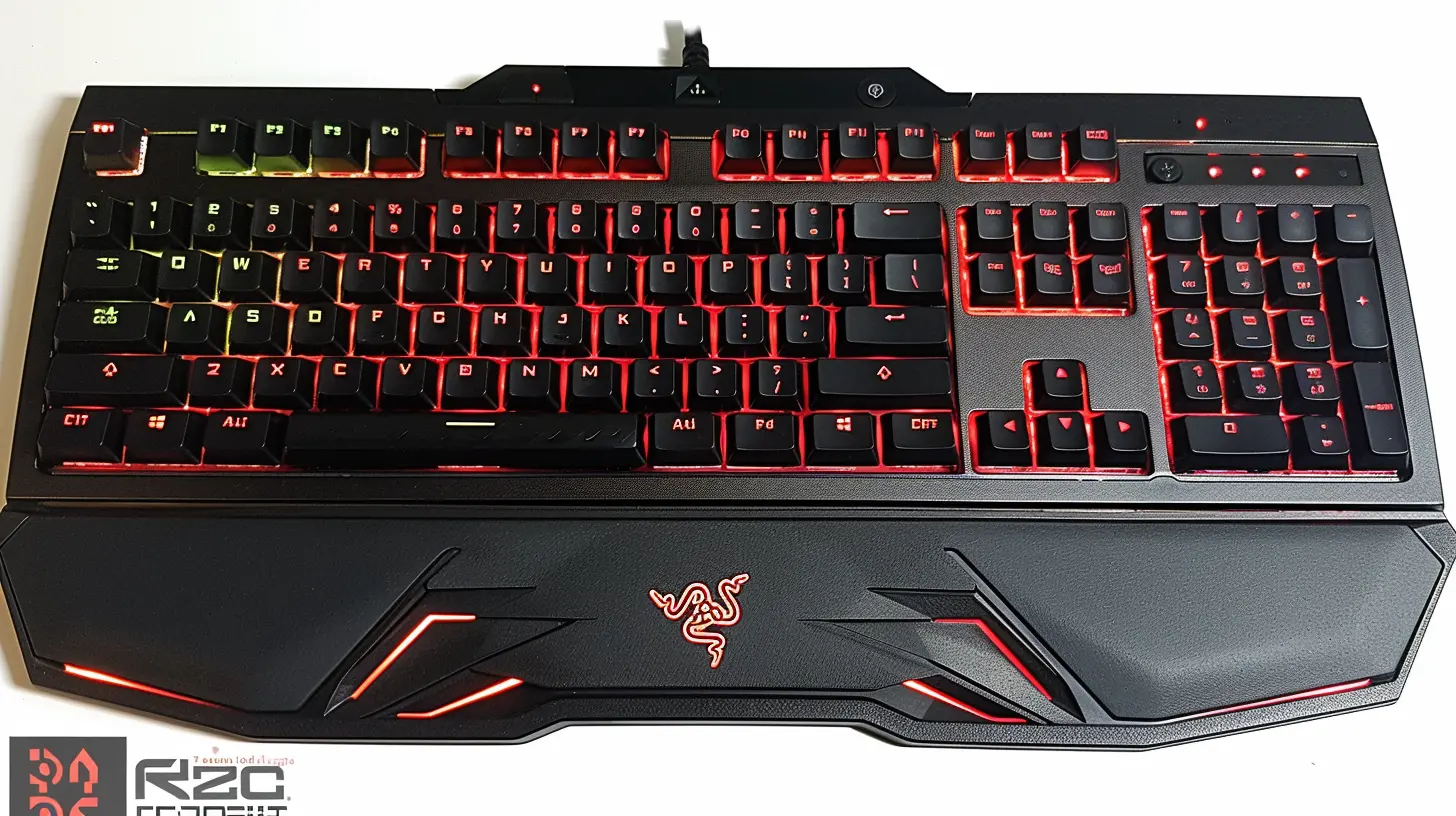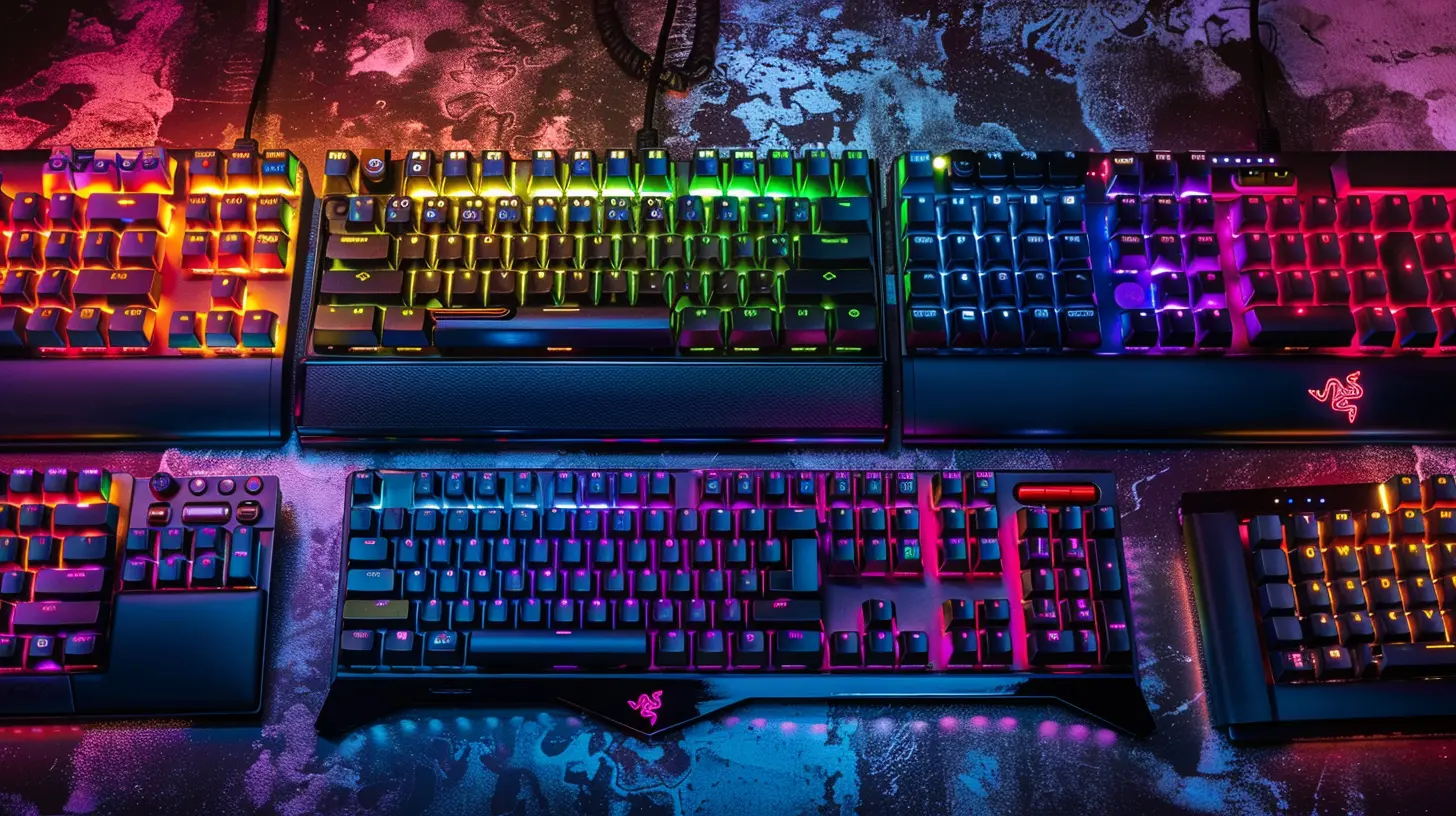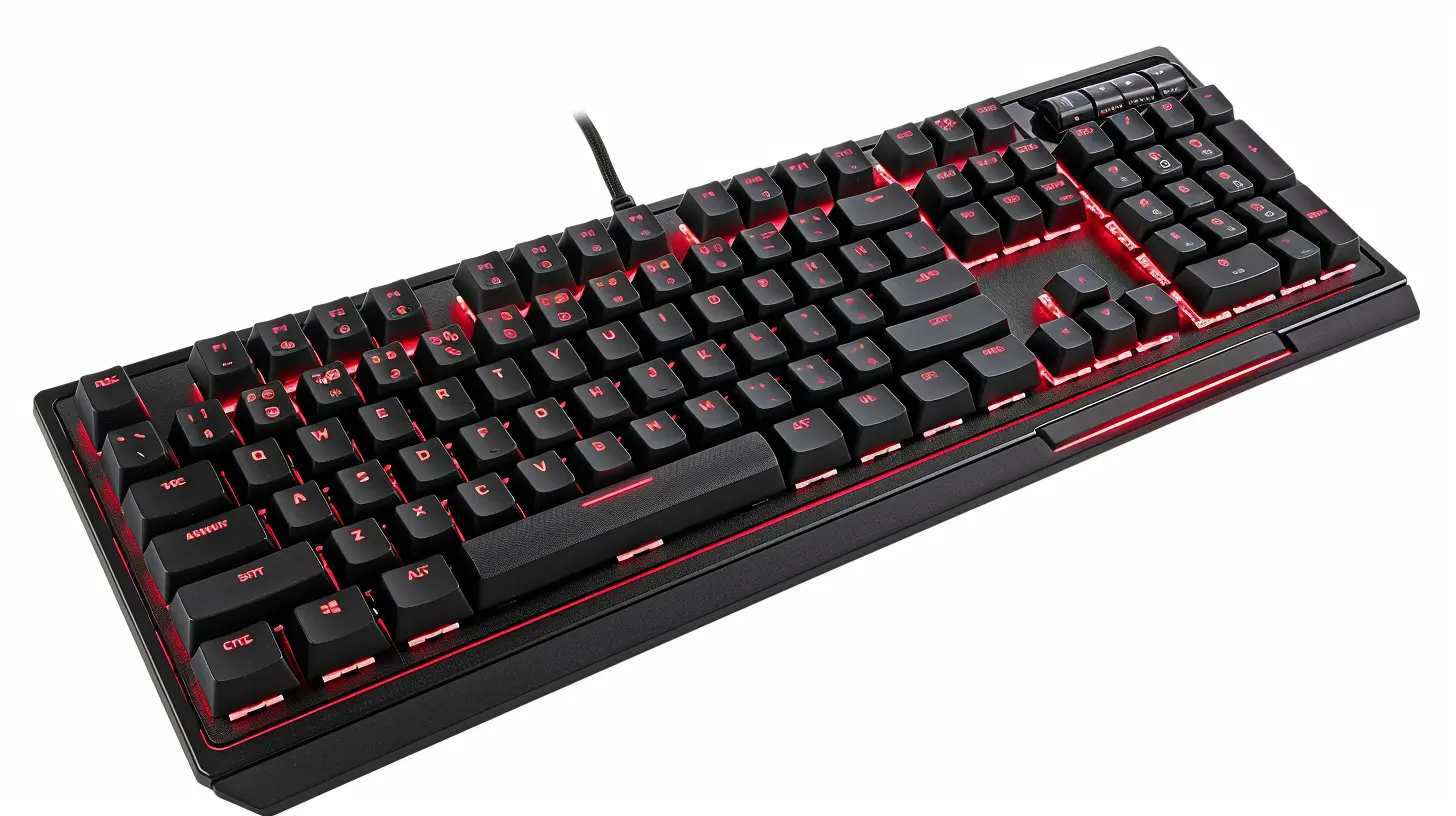The Quest for Quiet: Reviewing near-silent Gaming Keyboards
5 July 2025
Let’s be real for a second. You’re deep into a tense Valorant match or stealthily creeping through a horror game, and your keyboard sounds like a herd of tiny horses running across your desk. Yeah, not ideal. Whether you’re a night owl trying not to wake the fam or just someone who appreciates a more zen setup, you’ve probably wondered—why are gaming keyboards so dang loud?
Welcome to The Quest for Quiet, where we’re diving into the world of near-silent gaming keyboards. We’re talking buttery keystrokes, ninja-level stealth, and performance that still holds up when the pressure’s on. Ready to silence the noise without sacrificing your WPM or gaming edge? Let’s get into it.
Why Are Mechanical Keyboards So Noisy?
Before we look at how to make things quieter, let’s talk about the elephant in the room—or rather, the clacking in the room.Traditional mechanical keyboards are built with individual switches under each key. These switches (like Cherry MX Blues) offer satisfying tactile feedback and a clicky sound that enthusiasts love. But they’re loud. Like, wake-your-roommate-at-2-a.m. loud.
So what’s a gamer to do if you want that mechanical feel without the auditory assault?
What Makes a Keyboard “Silent”?
Great question. When we talk about silent or near-silent keyboards, it's not about turning your keyboard into a whispering ghost—you’ll still get some sound. But the idea is to reduce click noises and bottom-out clunks to a minimum.Here’s what usually goes into making a keyboard quieter:
- Switch Type: Some mechanical switches are quieter by design (like Cherry MX Silent Reds or Silent Blacks).
- Sound Dampening Materials: Foam in the case or keycap dampeners can absorb sound.
- Lubed Switches: A little lubrication goes a long way in making things smoother and quieter.
- Build Quality: Aluminum or high-quality plastic tends to reduce rattling.
Put it all together, and you’ve got a keyboard that won’t wake the neighbors but still lets you own the leaderboard.
Top Near-Silent Gaming Keyboards Reviewed
We've waded through countless models, tried them out in different setups, and now we’re ready to share the best of the quiet bunch.1. SteelSeries Apex Pro (OmniPoint Adjustable Switches)
If you’re chasing performance and silence in one slick package, the Apex Pro deserves a serious look.Why It Stands Out:
- Customizable actuation points mean you can tweak how hard you need to press keys.
- Aluminum frame = no flex + less rattle.
- The OmniPoint switches are far quieter than traditional mechanical ones but still responsive.
Noise Level: Low
Best For: Competitive gamers who love customization
Price: $$$
2. Logitech G915 TKL (Linear Switch Version)
This one’s for the minimalist gamer who wants wireless freedom without the extra decibels.Why It Stands Out:
- Low-profile switches with a smooth, linear action.
- Wireless with LIGHTSPEED tech—basically zero latency.
- Sleek, premium build that’s solid and quiet.
Noise Level: Very Low
Best For: Streamers or gamers recording content
Price: $$$$
3. Razer BlackWidow V4 (Yellow Switches)
Yes, Razer is known for their loud clicky keyboards, but hear us out—the Yellow switches are a different story.Why It Stands Out:
- Silent linear switches that still feel snappy.
- Dedicated media controls and RGB (because we all love a little glow).
- Razer Synapse software allows deep customization.
Noise Level: Medium-Low
Best For: Razer fans who want to tone down the noise
Price: $$$
4. Corsair K70 RGB MK.2 (Cherry MX Silent Reds)
If you’re loyal to Cherry MX switches but want a quieter experience, this is the one.Why It Stands Out:
- Cherry MX Silent Reds are designed to minimize noise without sacrificing feel.
- Solid aluminum top plate that absorbs some clatter.
- Per-key RGB lighting and full macro support.
Noise Level: Low
Best For: Traditional gamers who love Cherry switches
Price: $$$
5. Keychron Q2 (With Lubed Silent Switches)
This one’s for the custom keyboard scene junkies out there.Why It Stands Out:
- Hot-swappable switches—meaning you can pick your preferred silent switch (like Gazzew Bobagums or Silent Inks).
- Built like a tank with a hefty aluminum case.
- Comes pre-lubed for smoother, quieter keystrokes.
Noise Level: Ultra Low
Best For: Enthusiasts and tinkerers
Price: $$$
Custom Mods to Make Your Keyboard Quieter
Maybe you’re not ready to drop $150+ on a new board. No worries—there are DIY solutions that can help hush your current setup.🧽 O-Rings
These little rubber rings sit under keycaps and act as a cushion, cutting down on “bottoming out” noise.🔧 Switch Lubing
Sounds messy, but it’s a game-changer. Lubing your key switches reduces friction (and noise). It takes time but totally worth it.🧼 Foam Mods
Placing foam inside the case or under the PCB can dampen echo and absorb sound from typing. Think of it like putting a rug in a noisy room.🎛 Change Your Switches
If your keyboard is hot-swappable, you can switch to silent switches without soldering. Look for options like:- Cherry MX Silent Reds
- Gateron Silent Browns
- ZealPC Zilents
- Durock Silent Linears
How Silent is “Silent Enough”?
Here’s the thing—what sounds “quiet” to one person may still be too loud for someone else. So how do you measure it?Decibel levels help, but your environment matters too. Gaming in a quiet room vs a bustling house makes a huge difference. The sweet spot for most people? Somewhere under 40-45 dB.
And hey, if your keyboard makes less noise than your mouse clicks, you’re probably in the clear.
Do Silent Keyboards Affect Gaming Performance?
Short answer: Nope.Long answer? Not inherently. As long as you’re using quality switches with low latency, you’re good. Silent doesn’t mean mushy or unresponsive. That's a common myth.
The best quiet keyboards still offer:
- Fast actuation
- Low latency
- Tactile or linear feedback (your choice)
So, you can still pop heads in Apex Legends or precisely build in Fortnite without a noisy key chorus backing you up.
Final Thoughts: The Sound of Silence Is Sweet
Gaming keyboards don’t have to sound like a typewriter from the 80s.The quest for quiet isn’t about sacrificing speed, accuracy, or that sweet RGB glow—it’s about playing harder without making more noise. Whether you drop cash on a top-tier model or mod your current board into hushed glory, there are plenty of paths to a silent setup.
So next time someone says, “Gaming keyboards gotta be loud,” you’ll know better—and your team (and sleeping partner) will thank you.
TL;DR - Quietest Gaming Keyboards at a Glance
| Keyboard | Switch Type | Noise Level | Best For ||----------|-------------|-------------|----------|
| SteelSeries Apex Pro | OmniPoint | Low | Customization lovers |
| Logitech G915 TKL | Low-profile Linear | Very Low | Wireless fans |
| Razer BlackWidow V4 | Razer Yellow | Med-Low | RGB lovers |
| Corsair K70 MK.2 | Cherry MX Silent Red | Low | Cherry fans |
| Keychron Q2 | Custom Lubed | Ultra Low | DIY enthusiasts
all images in this post were generated using AI tools
Category:
Hardware ReviewsAuthor:

Leif Coleman
Discussion
rate this article
2 comments
Aleta McHugh
Great insights on the importance of noise levels in gaming gear! A quiet keyboard can enhance focus and immersion. Looking forward to trying out some of these recommended options.
December 1, 2025 at 4:40 AM

Leif Coleman
Thank you! I'm glad you found the insights helpful. Enjoy exploring the recommended keyboards!
Jamie McWilliams
If you’ve ever wished your keyboard sounded less like a marching band and more like a whispering breeze, this article is your golden ticket! Dive in for the ultimate quest to find the stealthiest keyboards that keep the noise dragons at bay! 🎮✨
July 16, 2025 at 2:44 AM

Leif Coleman
Thank you! I hope you find the perfect quiet keyboard for your gaming adventures! 🎮✨


